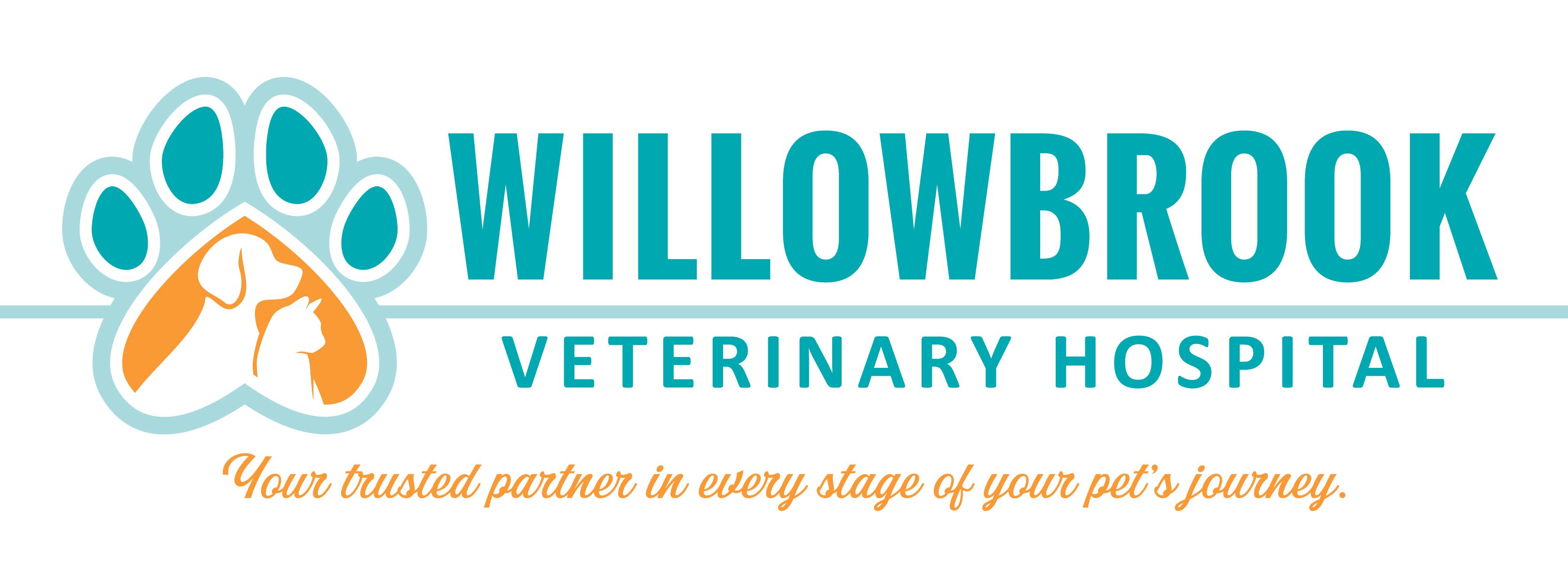Dog Dental Care: Keeping Your Pet’s Teeth Healthy
Good dental health is essential to your dog’s overall well-being. At Willowbrook Veterinary Hospital, we want to help you understand the importance of oral care for your dog, common dental issues, and how to keep their teeth healthy.
How Does the State of a Dog’s Teeth Affect Their Overall Health?
Poor dental health can lead to serious health problems beyond bad breath. Dental disease can cause pain, infections, and even affect vital organs like the heart, liver, and kidneys if bacteria enter the bloodstream.
What Dental Diseases or Complications Do Dogs Commonly Encounter?
Some of the most common dental issues in dogs include:
- Periodontal disease: Infection and inflammation of the gums due to plaque buildup.
- Tooth fractures: Often caused by chewing on hard objects such as bones, antlers, and rocks
- Tooth root abscesses: Painful infections at the base of a tooth.
- Retained baby teeth: Puppy teeth that don’t fall out properly, leading to overcrowding and misalignment.
What Causes Dental Disease in Dogs?
Dental disease in dogs is primarily caused by plaque and tartar buildup, which leads to bacterial infections in the gums and teeth. Poor oral hygiene, lack of chewing activity, and genetics can all contribute.
What Are the Most Common Signs or Symptoms of Dental Disease in Dogs?
Watch for these signs that may indicate dental disease:
- Bad breath
- Red, swollen, or bleeding gums
- Yellow or brown tartar buildup
- Difficulty eating or chewing
- Drooling excessively
- Pawing at the mouth
- Loose or missing teeth
What Are Some Reasons My Dog Is Losing Teeth?
Dogs may lose teeth due to:
- Puppy teething: Baby teeth naturally fall out as adult teeth grow in.
- Dental disease: Gum infections can cause tooth loss.
- Trauma: Chewing hard objects or accidents can break teeth.
- Genetics: Some breeds are more prone to tooth loss.
Is There a Specialist My Dog Needs to See for Dental Care?
Your primary veterinarian can handle most dental care needs. However, for severe cases such as complex extractions or jaw fractures, a veterinary dentist (a board-certified dental specialist) may be required.
Do Dog Teeth Fall Out?
- Puppy Teeth: Yes, just like humans, puppies lose their baby teeth between 3-6 months of age.
- Adult Teeth: They should not fall out unless there is an underlying issue such as severe dental disease or trauma.
Are Certain Dog Breeds More Likely to Develop Dental Problems?
Yes! Small breeds like Chihuahuas, Yorkshire Terriers, Pugs, and Dachshunds are more prone to dental disease due to crowded teeth. Greyhounds and other sight hounds are also known for having weak enamel.
What Should I Do If I See Plaque or Tartar on My Dog’s Teeth?
If you notice plaque (soft, yellowish buildup) or tartar (hard, brown deposits), schedule a veterinary dental exam. Tartar cannot be removed by brushing alone and requires professional cleaning.
How Much Does Dog Teeth Cleaning Cost?
A professional dog dental cleaning, otherwise known as Comprehensive Oral Health Assessment and Treatment) typically costs $600 to $900, depending on location. If extractions are needed, this is typically at an additional cost. Preventative care helps reduce long-term costs.
What Can I Do to Prevent Dental Issues for My Dog?
- Brush your dog’s teeth regularly
- Provide dental chews or treats
- Feed a dental-friendly diet
- Schedule annual veterinary dental exams
How Can I Care for My Dog’s Teeth at Home?
The best home care includes:
- Brushing their teeth daily or at least several times a week
- Offering vet-approved dental chews
- Using dental water additives or oral rinses
How Often Should I Brush My Dog’s Teeth?
Ideally, daily brushing is best, but even 3-4 times per week can significantly reduce plaque buildup.
Can I Use a Human Toothbrush and Toothpaste for My Dog?
No! Human toothpaste often contains increased fluoride and xylitol, which is toxic to dogs. It is best to use a dog-specific enzymatic toothpaste made for pets. While you can use a human toothbrush, dog-specific toothbrushes are typically more sturdy and last longer, especially if your pup likes to bite the brush.
How Can I Clean My Dog’s Teeth Without Brushing?
If your dog won’t tolerate brushing, you can try:
- Dental wipes
- Water additives
- Dental chews and treats
- Prescription dental diets
How Do I Know If My Dog Needs a Professional Dental Cleaning?
The American College of Veterinary Dentists recommends annual dental cleanings in all dogs. If you notice bad breath, tartar buildup, red gums, or difficulty eating, it’s time for a vet visit. Your veterinarian will determine if a professional cleaning is needed.
Does My Dog Need to Go Under Anesthesia for a Dental Cleaning?
Yes. Anesthesia is necessary to properly clean under the gums and take X-rays to check for hidden issues. It also keeps your dog’s airway protected as debris is removed from teeth. Anesthesia-free cleanings carry the risk of aspiration of debris and only remove surface plaque. They don’t address deeper problems.
What Should I Expect During My Dog’s Dental Cleaning?
A professional dental cleaning includes:
1. Pre-anesthetic exam & bloodwork to ensure safety
2. General anesthesia for a pain-free, thorough cleaning
3. Scaling & polishing to remove plaque and tartar
4. Full mouth dental X-rays to check for hidden issues
5. Extractions if necessary due to severe dental disease
Ready to Schedule a Dental Exam for Your Dog?
Regular dental care is key to keeping your dog healthy and pain-free. Willowbrook Veterinary Hospital offers professional cleanings and exams to keep your pet’s teeth in top shape.
Please give us a call at the office at (503) 968-2911, or you can email us at [email protected]. Our staff would love to talk with you!
